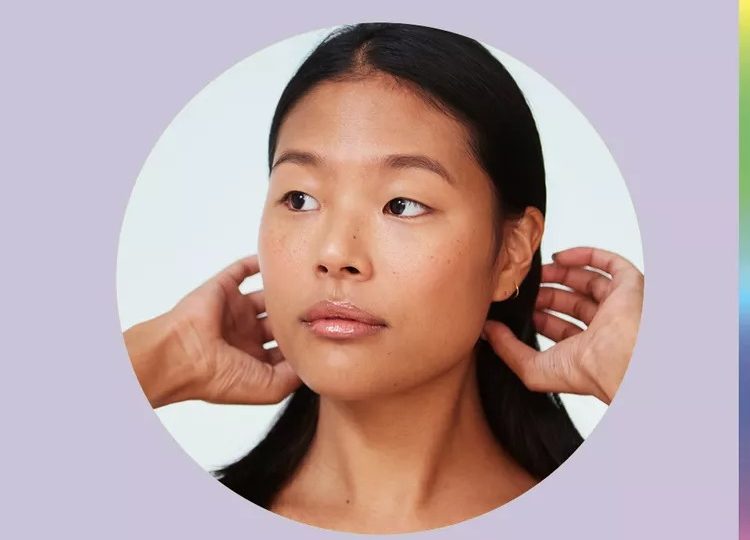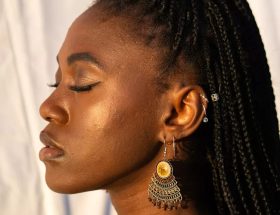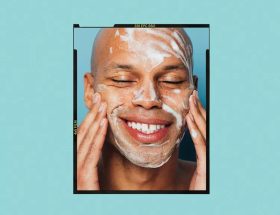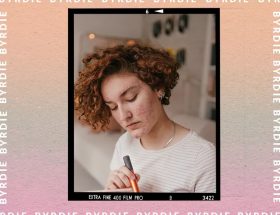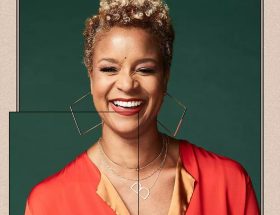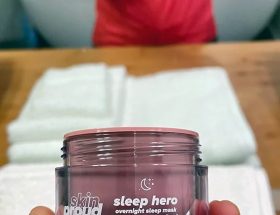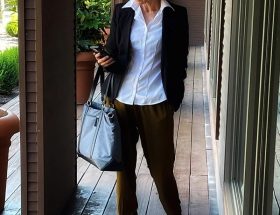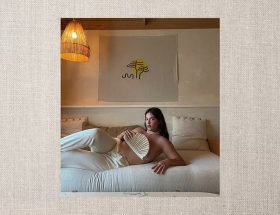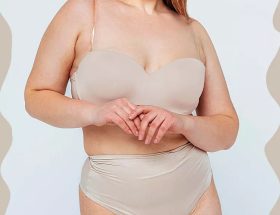Isolaz Everything to Know About This Painless Acne Treatment
If you have acne (especially the recurring kind), you’ve probably tried about every treatment known to man to try to combat it. Take it from me—in my teens, I tried using toothpaste (which ended up all over my pillow and never on my face) as well as Noxzema and Oil-Free Neutrogena Acne Wash. I also didn’t moisturize because I thought the oil would make me break out more. What a time. In my 20s, I had a retin-A prescription and was on birth control (great, until it wasn’t), and now I’m in my 30s, and as luck would have it, I’m still getting hormonal acne breakouts.
DIY Turmeric Face Mask To Combat Acne
As a beauty writer, I’m always on the hunt for the latest, most innovative acne treatments. That’s when I found out about Isolaz, a new-to-me professional treatment that could help treat acne in a painless, non-invasive way. If you’re like me and you’ve struggled to get your acne under control, the Isolaz treatment might be something to consider.
Below, we break down everything you need to know before you schedule your first Isolaz acne treatment.
Alexis Parcells, MD, is a board-certified plastic surgeon based in New Jersey.
Jennifer Chwalek, MD, is a board-certified dermatologist at Union Derm in New York City.
What Is Isolaz?
The Isolaz treatment (which is FDA approved, by the way) is a machine that combines the power of Intense Pulsed Light (IPL) and vacuum technology to deep cleanse your pores and reduce acne. According to Alexis Parcells, MD, a board-certified plastic surgeon, “Isolaz is an in-office therapy designed to combat acne,” she says. “This technology, called photopneumatics, combines the effects of laser therapy with a vacuum. The vacuum works to loosen and suck debris from inside the pore, while the laser destroys the acne that causes the breakout and decreases the production of bacteria from the sebaceous gland.” Anyone who has mild to moderate acne and blackheads on their face, back, and chest is a candidate for the treatment.
However, Isolaz is not designed to treat cystic acne.
Isolaz also helps prevent future breakouts, as it gets all of the bacteria and oil out of your pores that cause acne. Jennifer Chwalek, MD, a board-certified dermatologist, says, “Isolaz is a broadband light with a vacuum head that gently compresses this skin closer to the light as it is firing. This helps to reduce the bacteria and inflammation that are involved in acne.” With all the bacteria gone, it has nowhere to grow, and after repeated treatments, the bacteria should be gone altogether. We love to see it.
Isolaz is performed by a specially trained esthetician or dermatologist. Chwalek recommends three to five treatments to see visible, long-lasting results, although you should notice a significant improvement in your acne after the first treatment.
“Isolaz painlessly cleanses and disinfects the skin’s surfaces, while promoting healing,” Parcells says. “It has been shown to decrease pore size, remove oil and debris, and improve skin texture and pore size. It works on any skin type. The most common areas affected include the face, chest, and back.” If your skin has not had any response to topical acne treatments like alpha-hydroxy acids (AHAs), beta-hydroxy acids (BHAs), benzoyl peroxide, retin-A, antibiotics, and even Accutane, you might want to add the Isolaz treatment to your regimen. Studies have shown that the Isolaz treatment provides a significant reduction in acne (citation).
And like Parcells mentioned earlier, the treatment is completely painless (in a study, 100 percent of users said they experienced zero pain). It also doesn’t require any downtime, and is relatively quick—it takes only about 30 minutes to treat the face, and slightly longer to treat other, larger areas of the body. Depending on the severity of your acne outbreak, you might need anywhere from two to six sessions to see long-lasting results.
How to Prepare for an Isolaz Treatment
You can continue to use all of your regular skincare products before your Isolaz treatment. This includes all of your regular acne treatments as well, with the exception of isotretinoin (aka Accutane). This medication can change the way your body responds to the Isolaz treatment.
Oh, and if you’re a fan of spray tanning, using self-tanner, or enjoy spending time in the sun, you’ll want to avoid that. Chwalek says, “Prior to any laser treatments, it’s important to avoid the sun. Having a tan increases the risk of pigment issues following treatment.” She also recommends finding a laser specialist. “It’s also important to seek treatment with a practitioner who is skilled in laser surgery, especially if you have darker skin,” Chwalek says.
If it’s possible, you should also come to your appointment with clean, makeup-free skin.
